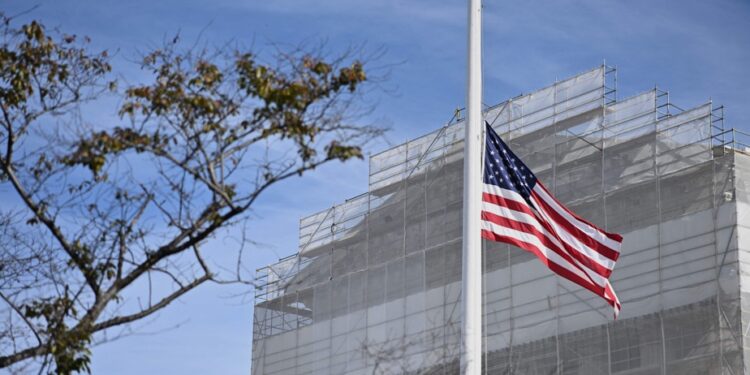Could Donald Trump impose tariffs citing a national emergency? Supreme Court judges will hear the parties’ arguments this Wednesday. A little guide to finding your way around.
What should the judges decide?
The case concerns presidential decrees to impose customs duties, signed invoking theInternational Emergency Economic Powers Act (IEEPA). This law allows the president latitude in transactions targeting foreign interests in times of national emergency, without going through Congress.
To impose tariffs against Canada, Mexico and China in February, Trump declared an emergency related to the fentanyl crisis. In his executive order accompanying the announcement of “reciprocal rights” against a multitude of countries in April, we can read that “trade deficits pose an unusual and extraordinary threat to the national security and economy of the United States.”
Since its entry into force in 1977, the IEEPA has never been used to impose customs duties and does not mention this issue. The nine judges of the Supreme Court must therefore determine whether this law authorizes the president to impose it.
Could the judges say that the emergencies declared are not emergencies?
That would be surprising. “Recourse to the law has prerequisites, one of which is that the president declare a state of national emergency, and that this state of emergency be unusual and extraordinary; so, in theory, it is possible that the Court will examine this question, but I do not expect it,” explains Tim Meyer, professor of international law at Duke University. The court is generally reluctant to question such presidential prerogative.
When will we know the decision?
Decisions for important cases heard in the fall are usually rendered in early summer, but it is possible that magistrates will try to decide more quickly.
What decisions have been made so far?
In May, the United States Court of International Trade ruled these tariffs illegal. A federal appeals court also concluded that IEEPA did not grant this authorization.
What happens if the Supreme Court also finds the government wrong?
It all depends, of course, on the nuances contained in the decision, but if the judges believe that the IEEPA does not allow the imposition of customs duties, the practice should normally cease. What follows is a little more complicated: will the injured parties obtain compensation? Will they each have to prove their damages? How will they be evaluated? “When ordered to stop an action that it would like to continue, the Trump administration tends to interpret court decisions very narrowly,” recalls Mr. Meyer. Reimbursements – to the tune of tens of billions of US dollars – would therefore not be automatic.
But even if the Court ruled in favor of the plaintiff companies, the question would not necessarily be resolved. “There remain other tools to implement customs duties,” underlines Matthew Dallek, professor of political management at George Washington University.
What impact for Canada?
The case does not include import taxes decreed under another law, notably on steel, aluminum and wood. Negotiations between the two countries could resume, influenced or not by the arguments put forward on Wednesday. “I’m sure that people in Canada, the Prime Minister and others, will follow the arguments very closely,” says Graham Dodds, professor of political science at Concordia. But it will be very difficult to know what element could pivot the cause. And very difficult to predict the judges’ conclusions. »
Are we expecting a decision along partisan lines?
There are three liberal justices and six conservative justices on the Supreme Court. “It’s easy to see the legal vision of judges along a partisan line – and sometimes, this is confirmed – but it is much more complicated than that,” notes Mr. Dodds.
Many groups have filed briefs with the Court, supporting one side or another. There are conservatives on both sides.
“This is probably the cause that divides conservatives the most,” underlines Mr. Dallek, who studies this trend. Even in Project 2025, we saw a division on the question of customs duties. »
Free trade is traditionally advocated by conservatives. Just like the theory of unitary executive power, which places great importance on presidential decisions. However, these two visions are not aligned in this cause.
How could this division be expressed in the decision?
The question submitted can be analyzed based on different legal theories. If customs duties are seen as a measure resulting in a major economic and political impact – for which Congressional approval is required – judges risk leaning against the administration. If the emphasis is on the broad powers granted to the president in matters of security and foreign policies, the judges could rule in favor of the administration.
“This is an important case that tests the limits of the president’s unilateral power, in a context where this Court has more or less given Trump what he wanted,” Mr. Dallek said.
If the judges agree with the Trump administration, the president could see it as a green light, Mr. Meyer believes. “I think it would embolden the Trump administration to push the limits of legal authority, thinking that it will continue to prevail,” he predicts.



